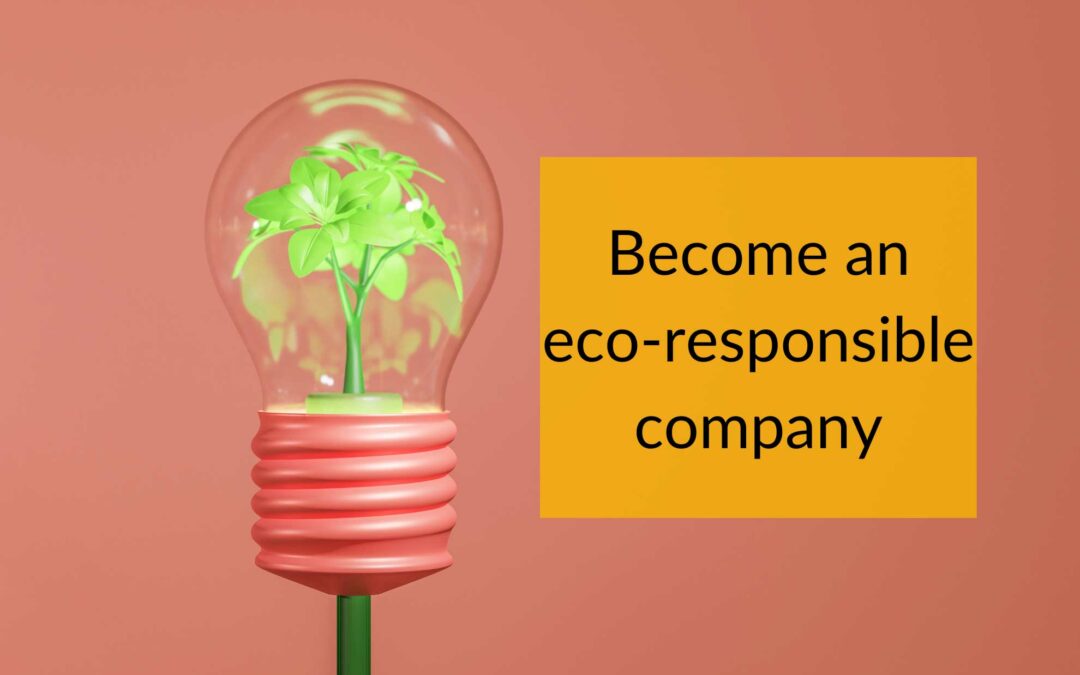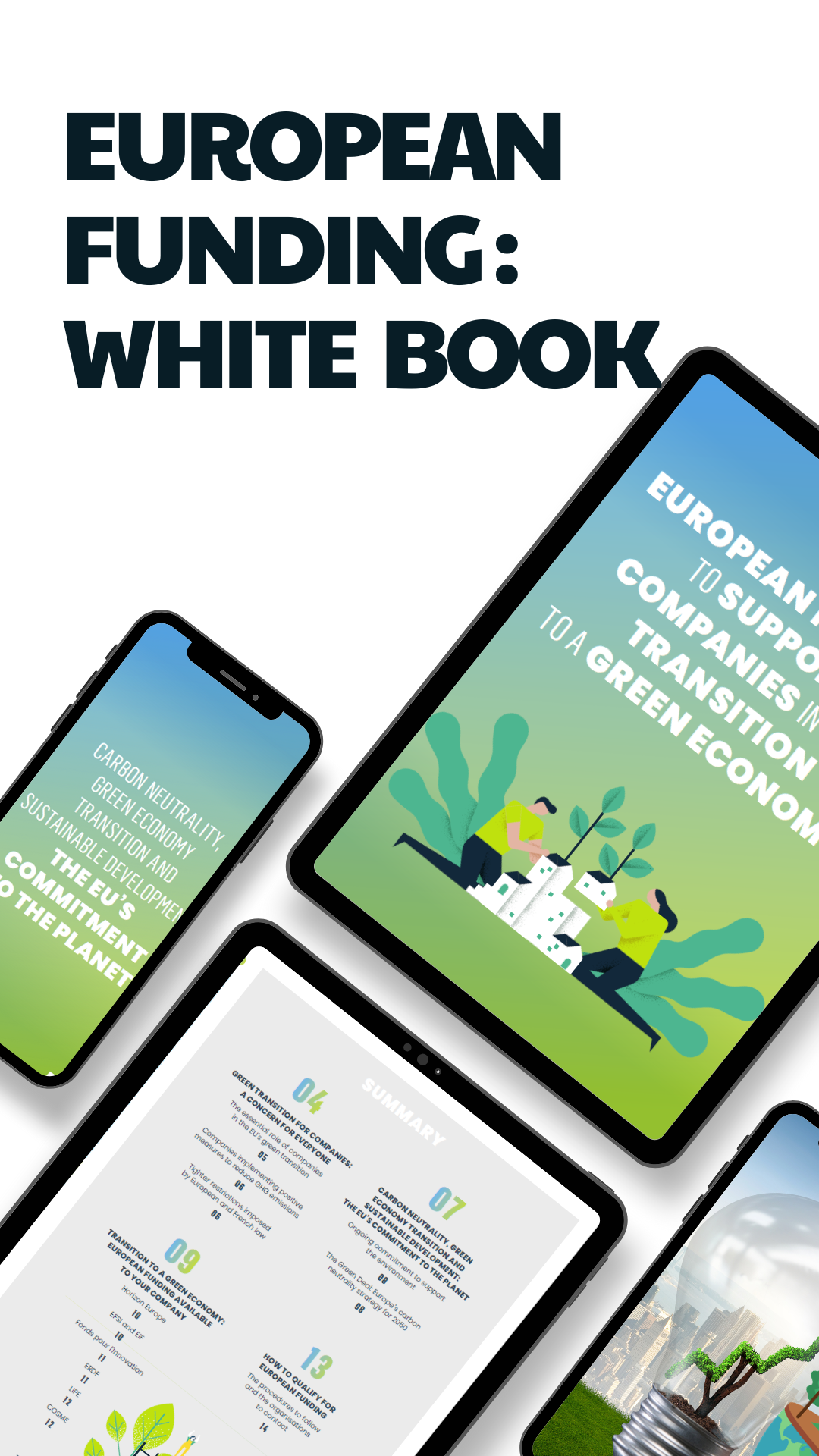As the climate change clock is ticking inexorably, the way goods are produced is under ever-increasing scrutiny. So the switch to an eco-responsible business model has become a priority for most organisations.
Many are now adopting a CSR (Corporate Social Responsibility) strategy, a key element in achieving their ecological transition and contributing to a greater extent to the environmental, economic and social issues around sustainable development.
This is also a tried-and-tested growth accelerator. A study undertaken by BrandZ in 2019 confirms this: “In as little as a year, brands with strong societal or environmental commitments grew twice as fast in value compared to brands that did not engage in this way”.
To turn this major challenge into a real opportunity for your company, empowering you to become an actor for positive change, this article provides an overview on how to implement your CSR strategy.
Takeaways: the 6 key stages to becoming an eco-responsible business
Becoming an eco-responsible business involves the setting-up of sustainable practices across all activities. 6 key stages can be identified:
- Assess the “as-is” position: this comprises assessing the environmental, social and economic impact of your business and identifying the points at which improvements can and should be made (resource and energy consumption, waste management, eco-design etc.). You can then set out the objectives, priorities and specific actions to integrate into your company strategy.
- Appoint a CSR manager: the CSR manager is then trained accordingly. They will steer and coordinate the actions put in place, monitor that these are effective and coherent, and ensure that the goals set are duly achieved.
- Mobilise the workforce: your employees play a fundamental role in delivering change. To gain their commitment, they need to be made aware of, and trained on, the environmental issues.
- Put in place concrete actions: this stage comprises implementation of the actions set out in your CSR strategy.
- Measure and evaluate the results of your CSR initiative: it’s important to regularly measure the impact of your actions. This evaluation allows you to identify the strengths – and weaknesses – in order to further improve your ecological approach.
- Communicate and highlight achievements: transparency reinforces confidence, underpinning your commitment and your brand image. Your initiatives and actions must therefore be communicated to all stakeholders. Achievements also need to be highlighted to maintain the commitment of all your partners.
Note that standard ISO 26000 offers guidelines to follow in order to launch, or further develop, your CSR approach.
The CSR strategy, leverage for becoming an eco-responsible company
Corporate Social Responsibility provides a structured framework for integrating environmental, social and economic concerns into every activity at the company. It allows concrete and measurable goals to be defined with regards to sustainability and responsibility and means the company will adopt practices that are better for the environment, society and future generations.
For this, and as part of France Relance, companies that commit to such an approach have access to consultancy, assistance, loans and subsidies to support their ecological transition. Calls for projects are also regularly announced.
What are the benefits of becoming an eco-responsible business?
In adopting a sustainable and responsible strategy, you are above all contributing to the fight against climate change by reducing your carbon footprint and, more widely, your environmental impact (reduced greenhouse gas emissions, conservation of natural resources and biodiversity, etc.). This approach is increasingly regulated and is essential to preserving the planet.
Beyond the environmental question, this is also relevant to economic concerns. The practices implemented will require a more frugal use of resources – particularly energy – so the eco-responsible approach should also be regarded as an opportunity to significantly reduce costs for the company.
It’s also worth noting that eco-responsibility, paired with the CSR approach, encourages a holistic approach whereby the company takes into account its entire ecosystem – including internal and external stakeholders. The resulting ethical decisions contribute to both motivating colleagues and to attracting new talent. They work to promote a positive brand image favourable to your growth and to reinforcing the confidence of all stakeholders (employees, suppliers, clients, partners, investors etc.)
Case study: Serge Ferrari and Sogetrel – when the ecological transition enhances your brand image
1 – Serge Ferrari designs, produces and sells flexible composite materials for the architectural, industrial, and agricultural sectors and the consumer market (particularly gardening and yachting)
The brand has committed to its ecological transition by centring its strategy around eco-design and the recycling of end-of-life products, but also by positioning itself in applications for its material in the burgeoning green and blue sectors (development of renewable energies or aquaculture, for example).
An energy and ecological transition that has contributed to improving their brand as an employer, and their brand image as a whole, so enabling access to new markets, encouraging employee loyalty, and in particular attracting new talent.
2 – Sogetrel designs, constructs, maintains and operates networks and communication solutions. Unable to take action on energy production, this service company elected to act on its principal source of energy consumption and greenhouse gas emissions: transport. The company therefore replaced physical client meetings with video-conferencing.
This commitment in favour of sustainable development and CSR has had a direct impact on the attractiveness of the company in the eyes of demanding new investors. It has also enabled it to plan for growing demand from their clients, particularly in matters of energy transition.
The eco-responsible company, an opportunity for growth
Becoming an eco-responsible company isn’t just the prerogative of a few – it’s everyone’s business. This 6-stage approach, which aligns perfectly with CSR, isn’t only indispensable for mitigating environmental impact. It also allows for cost reductions, brand image enhancement and reinforcing confidence among consumers, colleagues and other partners.
Furthermore, becoming an eco-responsible company is also a real opportunity for growth.
What are you waiting for ?




